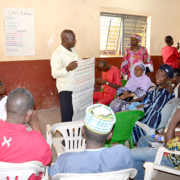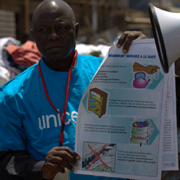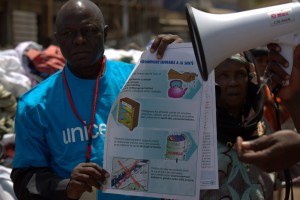Rebuilding Trust in Health Care through Community Dialogues
Even before the Ebola outbreak, Guinea had some of the worst maternal and child health indicators in the world. Trust and confidence in health services were already low, and the rapid spread of the epidemic further fueled the fear and distrust of these services. After the release of the last Ebola patient in mid-November, Guineans tensely waited for the 42-day period to pass so they could finally be declared free of Ebola.
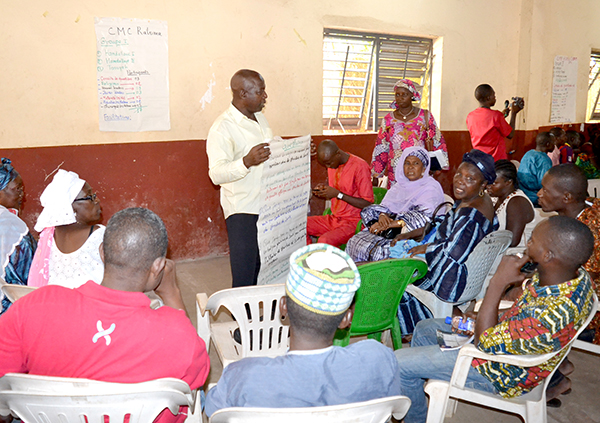
A facilitator leads a community dialogue in Ratoma, a neighborhood in the capital city, Conakry.
Photo credit: Guillaume Bakadi
As the country slowly begins to mend, the Health Communication Capacity Collaborative (HC3) team in Guinea is working with the hardest-hit communities to rebuild both the communities’ trust in the health system and the quality of care that they receive. HC3’s approach incorporates evidence-based social and behavior change communication (SBCC), capacity-building and quality-improvement interventions. Over the next few months, we will highlight different parts of the process, from facilitating community dialogues to promoting Gold Star branded revitalized quality health centers.
The first, and arguably most important, activity to rebuild trust in the health system is the community dialogue — a process to bring together patients and health providers to discuss how to make health services better. By involving both community members and health providers in the early stages of the health center revitalization process, they are not only able to identify the key problems and concerns, but they are also more likely to be engaged as part of the solution.
“Looking at the health situation in Guinea, it is very important to keep the community informed. As a result of this community dialogue, we health providers should know now what we should improve and what we should not do. Through this community dialogue, people were permitted to talk frankly in front of health providers on what they do not like regarding our behaviors and rea-sons why they are resentful to seek care in health structures.”
Dr. Fatoumata Yansane, Matam Health Center, Conakry
In November and December, HC3 organized four community dialogues in the capital city, Conakry. Neighborhood leaders, representatives from women’s and youth groups, and religious leaders were invited to meet with health-center supervisors, doctors, nurses and other health staff to share their concerns. These dialogues were very successful. Over 270 participants engaged in lively discussions about the kinds of barriers to service utilization and how to improve the care provided to their communities. Participants identified the high cost of services as a key barriers to use – including providers unofficially charging extra for services, unfriendly welcome by health providers and lack of information given to patients by providers.
After the event, participants from both groups expressed their gratitude for opportunity that the dialogue provided to improve communication in the community. Community leaders pledged to address the problems raised by: 1) reinforcing communication efforts to reach more people with positive messages about service utilization; 2) creating networks of youth, women, community leaders and health providers to give credibility to the messages and instill confidence in health services; and (3) involving local radio stations to promote quality community health services.
HC3 will continue to support these community dialogues across Guinea, as the crucial first step of the quality improvement activities.

